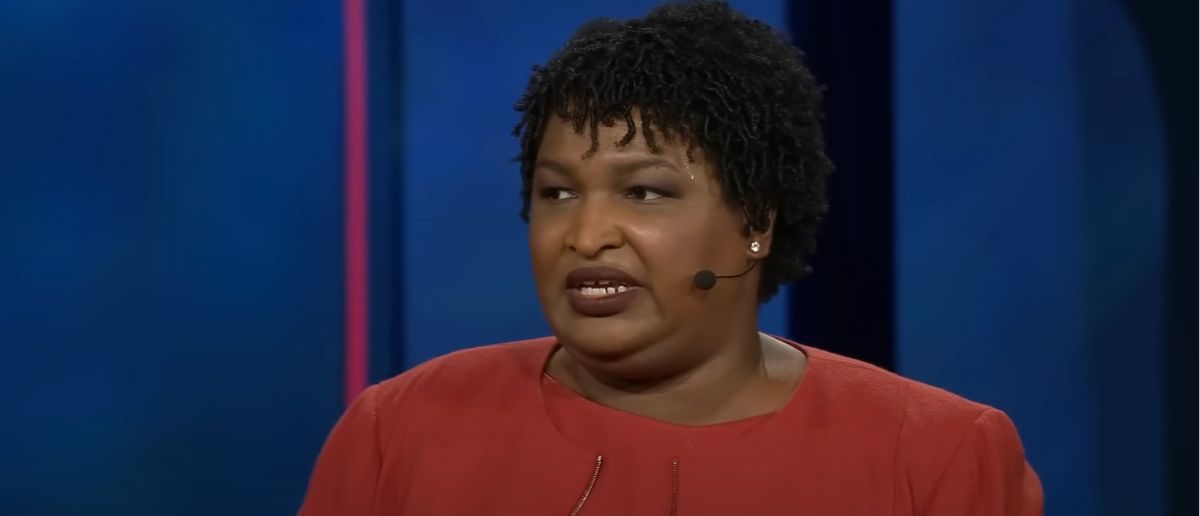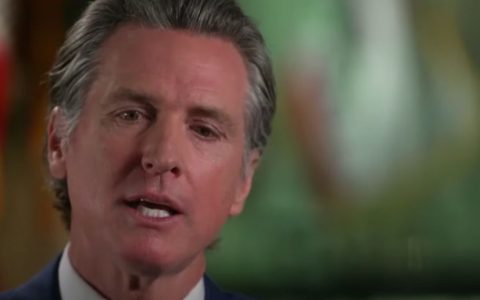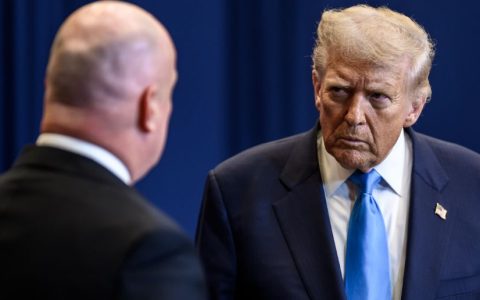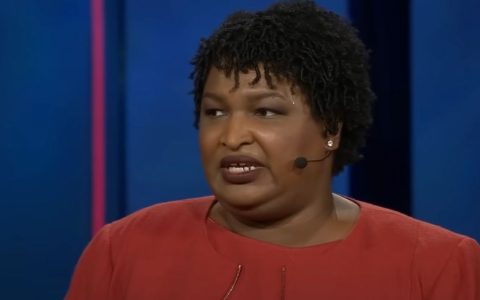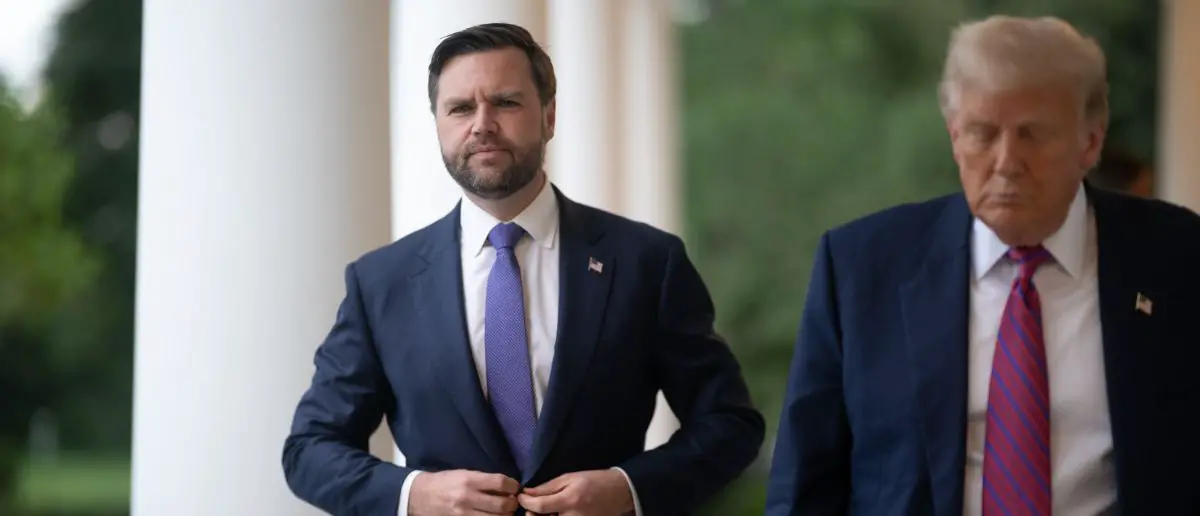
The Vice President has been unusually quiet. This has the rumor mill running wild.
And now J.D. Vance has been given astonishing news about what is up next for his career.
CNN’s chief data analyst, Harry Enten, stated on Thursday that Vice President J.D. Vance is strongly positioned to clinch the Republican presidential nomination in 2028. At a White House event on Tuesday, President Donald Trump remarked that Vance was “probably favored” to lead the Make America Great Again [MAGA] movement in 2028. During a segment on CNN News Central, Enten noted that a Trump endorsement could significantly bolster Vance’s potential candidacy.
“Let’s take a look at this. It’s early, but in polling for the GOP nomination, J.D. Vance is at 40%,” Enten said. “No one is even close. [Republican Florida Gov] Ron DeSantis is way back at 8%. Donald Trump Jr. is at 7%.” Enten emphasized that while the data is preliminary, it still holds considerable significance.
“[K]eep in mind that early favorites have actually gone on to win the nomination 63% of the time — those who have run since 1980,” he said. “And when you’re dealing with fields that are five, six, seven, eight, nine, ten, upwards of north of 20, and all of a sudden you’re telling me that the early poll leader who is JD Vance, that those win more than 50% of the time? That is why I say it looks pretty gosh darn good. Or pretty, pretty good for the man from Ohio.”
Host Kate Bolduan inquired about the track record of vice presidents seeking their party’s nomination. “How about vice presidents? Sitting vice presidents. The last five sitting vice presidents who ran — Richard Nixon in ’60, he won. How about Hubert Horatio Humphrey in ’68? How about Bush the First in ’88? Won. Al Gore in 2001. Kamala Harris in 2024. Won,” Enten said. “All of the last five sitting vice presidents who ran for their party’s nomination, won.”
“So it’s not just the polling. Historically speaking, if JD Vance gets in this fight and he’s the sitting vice president, the history books say, hey, he’s got a pretty gosh darn chance of going all the way, at least to the general election, because five out of five,” he added. Bolduan then asked about the impact of Trump’s influence on Vance’s nomination prospects.
“So President Trump has said some pretty gosh darn favorable things about JD Vance over the last week and his chances perhaps in 2028,” Enten said. “Look at this. Times Trump endorses in GOP primaries and that person goes on to win. Look at this — in 2020, 98%, 2022, 95%, 2024, 96%.”
“If Donald Trump decides to get behind his vice president, this GOP nomination fight in 2028 is likely adios amigos. Over,” he continued. “JD Vance is very much likely going to be the GOP nominee, which is what the polling says and what history says as well. At this point, things all seem to be coming up for JD.”
During the Tuesday event, Trump suggested that Secretary of State Marco Rubio could potentially join Vance as his running mate in 2028. “I think Marco is also somebody that maybe would get together with JD in some form,” the president said.
Rubio, appearing on My View with Lara Trump in July, expressed support, stating, “JD Vance would be a great nominee” if he pursued the presidency. Additionally, GOP strategists and analysts told the Daily Caller News Foundation in March that Vance’s position as the Republican National Committee’s finance chair further solidifies his status as the leading contender.
Why J.D. Vance Could Have a Clear Path to the Presidency
J.D. Vance’s potential path to the presidency in 2028 hinges on several key factors, particularly the Democratic Party’s ability to field a competitive candidate. If Democrats nominate someone perceived as too far left, particularly on issues tied to socialism or Marxism, Vance could capitalize on widespread voter concerns, especially among moderates and independents. Recent analyses from political outlets like Politico and The Hill suggest that voters remain wary of progressive policies that appear to challenge free-market principles or traditional American values, creating an opening for a candidate like Vance, who has positioned himself as a populist conservative.
Vance’s appeal stems from his ability to connect with working-class voters, a demographic that has increasingly shifted toward the Republican Party. His memoir, Hillbilly Elegy, and his vocal advocacy for Rust Belt communities have made him a relatable figure to those disillusioned with coastal elites and progressive ideologies. If Democrats select a candidate who leans heavily into socialist policies—such as sweeping wealth taxes or nationalized healthcare—Vance’s messaging, which emphasizes economic nationalism and cultural conservatism, could resonate strongly, as noted in a 2025 analysis by The Wall Street Journal.
The Democratic Party’s internal divisions could further pave the way for Vance. Recent reports from NBC News and The New York Times highlight tensions between the party’s moderate and progressive wings. A candidate perceived as extreme, such as one advocating for policies like universal basic income or aggressive wealth redistribution, risks alienating swing voters in battleground states like Pennsylvania, Michigan, and Wisconsin—states critical to securing the Electoral College. Vance, with his Ohio roots and focus on economic revitalization, is well-positioned to exploit this vulnerability.
Historical trends also favor Vance. As CNN’s Harry Enten noted, sitting vice presidents who seek their party’s nomination have a strong track record, with all five since 1960 succeeding. This precedent, combined with Vance’s early polling lead—40% in GOP primary polls, far ahead of competitors like Ron DeSantis—gives him a formidable edge. If Democrats nominate a polarizing figure, Vance’s ability to unify the Republican base while appealing to disaffected moderates could prove decisive.
Donald Trump’s influence remains a critical factor. His endorsement has proven nearly unbeatable in recent GOP primaries, with success rates of 95% or higher from 2020 to 2024. A Trump-backed Vance would likely dominate the Republican field, leaving little room for challengers. Moreover, Trump’s suggestion of Marco Rubio as a potential running mate could broaden Vance’s appeal, particularly among Hispanic voters, a growing demographic in states like Florida and Texas, according to a 2025 Pew Research Center report.
The Democratic Party’s messaging will be pivotal. If their candidate embraces policies labeled as socialist or Marxist—terms often weaponized by Republicans to depict progressive agendas—Vance could frame the election as a referendum on economic freedom versus government overreach. A 2025 Gallup poll found that only 25% of Americans view socialism favorably, compared to 60% who prefer capitalism. This sentiment could give Vance a clear advantage in a general election.


